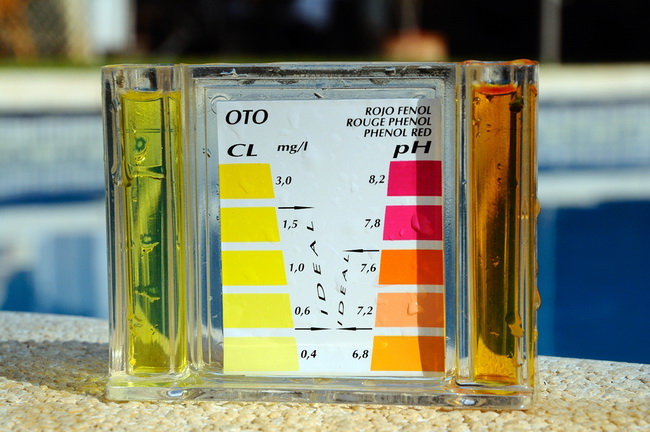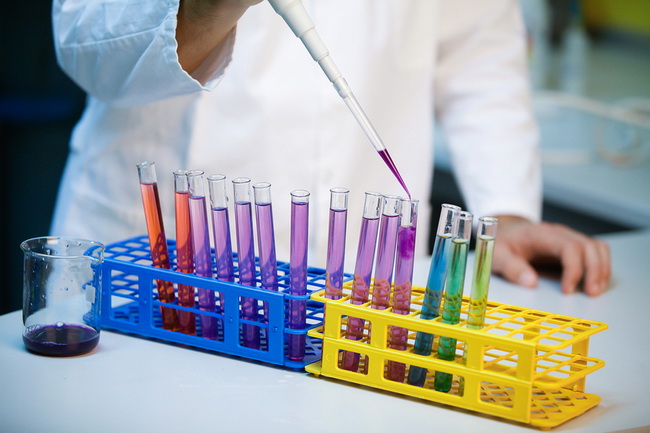- Make It Yourself Lavender Heart-Shaped Bath Bombs!
- 20 Things You Never Knew About “Down There”
- 12 Best Foods For Those Suffering From Arthritis Pain
- 12 Personal Hygiene Mistakes Almost Everyone Makes (Mom Never Told You About #4!)
- 15 Medicinal Plants And Herbs From The Cherokee People
- 12 Mind-Blowing Benefits Of Drinking Coconut Water During Pregnancy
- 12 Outstanding Winter Foods That Won’t Fatten You Up Like A Christmas Turkey
How To Find Out If You Are Too Acidic, And Balance Your Natural pH Level

Photo credit: bigstock.com
You have probably heard a lot of talk lately about being over-acidic, and which foods are known to be more alkaline. Then there is all that expensive alkaline water in your store. But what does it all mean? What is pH, and why does it matter?
First, the technical stuff. If you remember anything from your high school chemistry class, pH is a measurement of hydrogen. Solutions with low amounts of hydrogen have higher pH value and vice-versa. The pH scale goes from one to 14, with seven being neutral. Above seven is considered to be alkaline and below seven is considered acidic.
In a perfect world, your body should have a pH of between 7.0 and 7.4, which means you should have neutral or slightly alkaline pH in the body. When we talk about “the body” we are referring to the main fluids in the body: The lymph fluid, cerebrospinal fluid, and blood. Our digestive tracts are not nearly as steady due to the changes in foods that are constantly introduced. Our mouth and esophagus are slightly acidic with a typical pH of 6.8. Our stomach, as you might imagine, is very acidic with typical reading of 1.3. Our small intestine should be about 7.4, and the colon can range anywhere from 5.5 and 7.
Why should we care about all this?
Although one scientist back in 1931 found that cancer thrives in an acidic environment, recent studies and technology have proven what that scientist knew 80 years ago — that an acidic body is much more susceptible to disease, including heart disease, cancer, and arthritis. When the pH of the body is out of balance, your digestive system does not work properly, meaning you also will not be able to absorb some of the nutrients from all the good food that you are eating. Also, when the digestive system is out of whack, insulin levels and cholesterol, not to mention your immune system, do not work properly. All of these things are influenced by pH levels.
You will want to keep your pH level as close as possible to the way nature intended it to be. If you are already fighting disease, you might want to start by looking the pH level in your body and adjusting it as much as you can. It’s only after people have been diagnosed with disease do they start to consider their pH levels.
Continue to Page 2

Photo credit: bigstock.com
If you have never done so, you might want to test your pH to find out the status of your body. You can do this simple test at home. Buy some litmus paper, which can be found at any pharmacy without a prescription. It is very inexpensive.
Collect a clean sample of urine first thing in the morning in a clean container. Dip the litmus paper in it to measure your pH. You can also use your saliva. To use this method, either perform your test one hour before you eat or two hours after. Your saliva will need to be a clean sample, so do not brush your teeth before your test — simply drink some water and rinse your mouth an hour before your test. Swallow first, then collect some saliva in your mouth, and spit into a clean container. Do either test over several days and keep a record. This way you can average out your findings.
What should you do if you are too acidic?
There are plenty of ways to alkalize your body so that it returns to normal.
Consuming chlorophyll supplements is one popular way of alkalizing your body. Take as directed, and continue to test your urine until you reach the desired level. You can then cut back and adjust the amount until you find the correct dosage to keep your body in a slightly alkaline state of being.
Another way is to simply eat more foods that alkalize the body. Increasing the amount of fresh produce you eat every day is not only the best way, but it is also the most natural way, and has tons of other benefits in addition to alkalizing the body. All vegetables are alkalizing and most fruits are as well — including fruits you would think are acidic, such as lemons, limes, and grapefruit. Fruits to avoid are pineapple, raspberries, and pomegranates. These are acidic in the body, and although they do have health benefits, if you are striving to become more alkaline, you should avoid these.
You should also stop consuming tons of bread, rice, tortillas, and most gluten foods. Test your urine, and you will see that after a day of eating lots of these foods, your acid levels will increase. This doesn’t mean that whole grains are bad — again, this simply means that if your goal is to become less acidic, then limit these foods.
Continue to Page 3

Photo credit: bigstock.com
Most commercially-made condiments, besides not being very healthy, are also acidic. Make your own ketchup, mustard, miso, and mayo. Avoid canned veggies, and eat fresh, organic produce.
Eat less meat, which is very acidic to the body, and add more beans, such as navy, black, and lima beans, all of which are very alkaline. Sesame seeds, fennel, cumin, and caraway seeds are great for alkalizing as well. Nuts and seeds are all highly alkaline, so be sure to snack on those.
Stevia is alkaline, so be sure to add more of that to your life, but leave out all other types of sweeteners — even natural ones like maple syrup and honey. Never eat refined sugar!
Limit wine to one glass each day, and trade your coffee for green tea.
SEE ALSO: Top 5 Things to Avoid for a More Alkaline Body and 5 Things You Should Do
Let’s not forget to address stress levels. Stress brings on hormonal imbalance as well as increasing the acid output of your stomach. Find ways to reduce stress, and then practice natural means of managing the stress you cannot remove from your life. Try meditation, yoga, and deep breathing techniques. And let’s not forget exercise, which is a natural stress reliever.
Oh, that expensive alkaline water? Forget it. It will help you if you suffer from acid reflux or indigestion, but other than reducing the acid in your stomach, it doesn’t do much.
Happy alkalizing!
References:
































